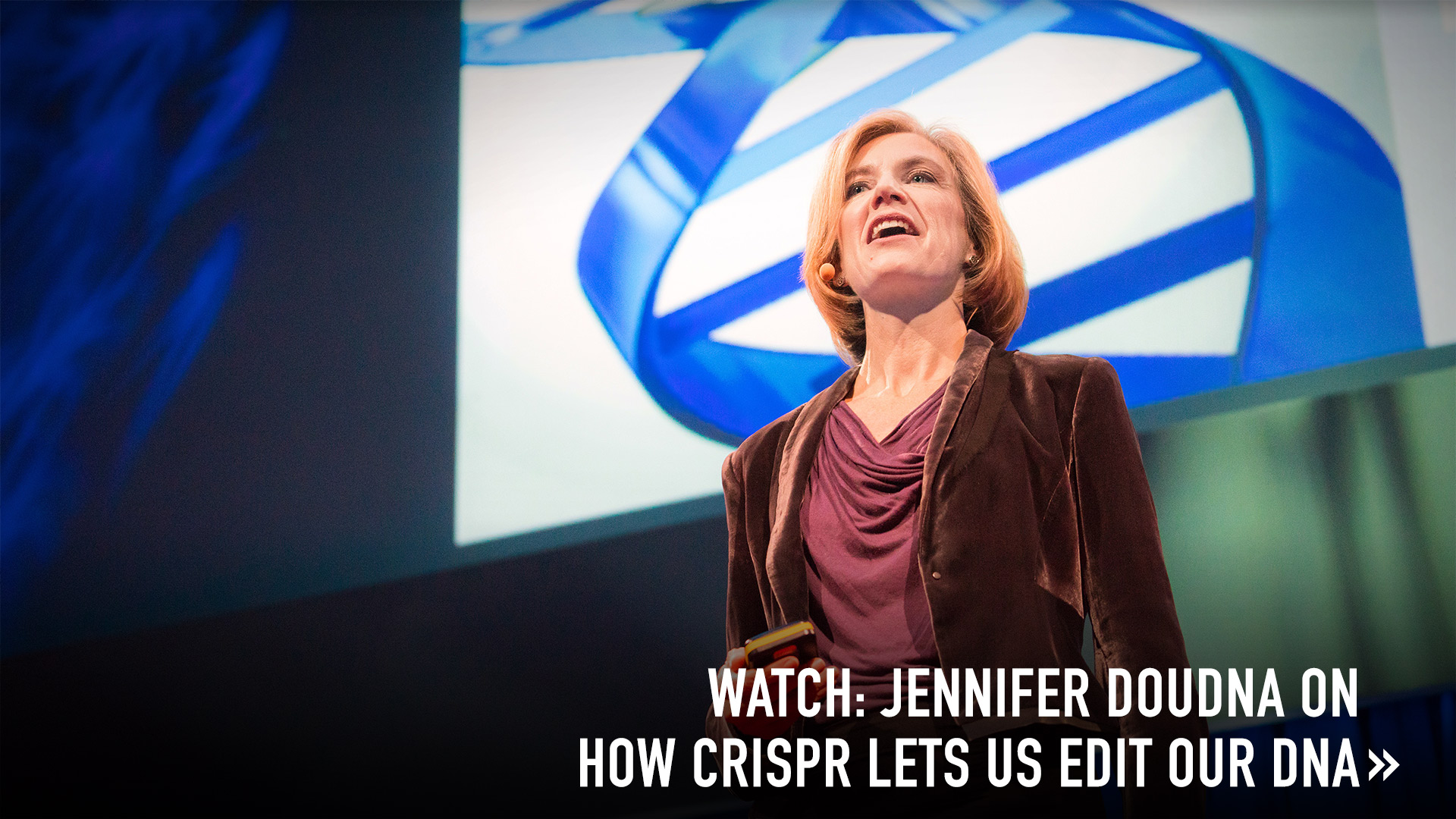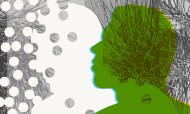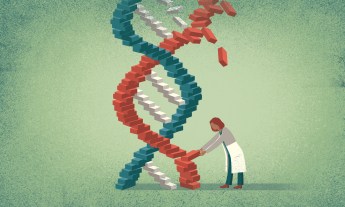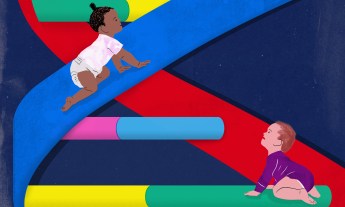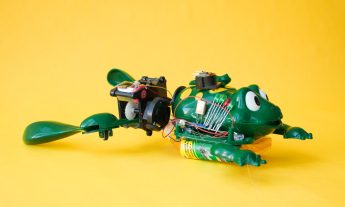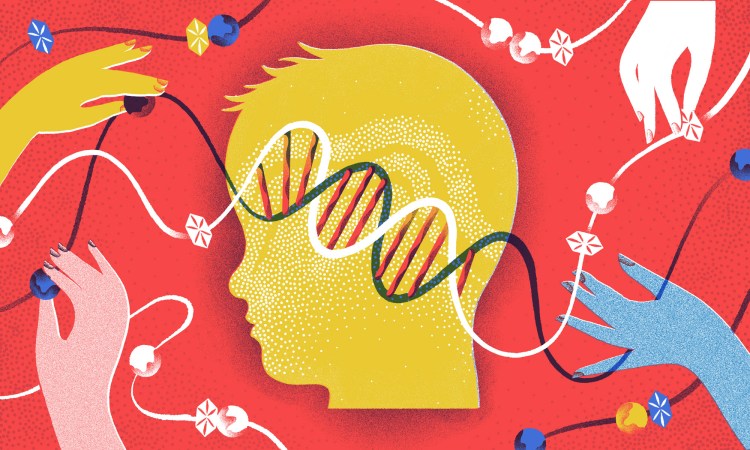
Researchers recently reported that they were able to edit human embryos to fix a dangerous mutation. The technology is inching closer to reality, so we need to take a stand, says biochemist Jennifer Doudna.
If CRISPR can help parents conceive a disease-free child when no other options exist and it can do so safely, ought we to use it? It’s a question I’ve asked myself again and again — and one that is particularly timely due to the Nature study published this month that described how scientists at Oregon Health and Science University, working with collaborators in California, China and South Korea, were able to correct human embryos of a common and harmful genetic mutation.
Unsurprisingly, Americans are having a hard time agreeing on an answer: a 2016 Pew Research poll found that 50 percent of adults in the US oppose the idea of reducing the risk of disease using germline editing, compared to 48 percent in favor. (When it comes to making nonessential enhancements to a baby’s genome, we seem to be considerably more unified; only 15 percent of the poll’s respondents were in favor.)
Religion is one obvious moral compass that people use to confront difficult questions like this, though perspectives can vary widely. When it comes to experimentation with human embryos, some Christian communities are opposed because they regard the embryo as a person from conception, whereas Jewish and Muslim traditions tend to be more accepting because they do not consider embryos created in vitro to be people. And while some religions see any interventions in the germline as a usurpation of God’s role in humanity, others welcome human involvement in nature as long as the goals pursued are inherently good.
Humans have been reproducing for millennia aided only by the DNA mutations that arise naturally, and for us to begin directing that process seems almost perverse.
Yet another moral guidepost is purely internal: the visceral, knee-jerk reaction to the idea of using CRISPR to permanently edit a future child’s genes. For many people, the very idea feels unnatural and wrong, and I was one of those people when I first started thinking about the issue. Humans have been reproducing for millennia aided only by the DNA mutations that arise naturally, and for us to begin directing the process – similar to the way that plant biologists might genetically modify corn – seems almost perverse at first glance. As National Institutes of Health director Francis Collins put it, “Evolution has been working toward optimizing the human genome for 3.85 billion years. Do we really think that some small group of human genome tinkerers could do better without all sorts of unintended consequences?”
While I share the general feeling of unease at the idea of humans taking control of their evolution, I wouldn’t go so far as to say that nature has fine-tuned our genetic composition. Obviously, evolution didn’t optimize the human genome for the present era, when modern foods, computers and high-speed transportation have completely transformed the way we live. And if we look over our shoulders at the course of evolution that has led to this moment, we’ll see it’s littered with organisms that didn’t benefit from the mutational chaos that underpins evolution. Nature is less an engineer than a tinkerer — and a fairly sloppy one at that. Its carelessness can seem like outright cruelty for those people who have inherited genetic mutations that turned out to be suboptimal.
Similarly, the argument that germline editing is unnatural doesn’t carry much weight with me anymore. When it comes to human affairs and especially the world of medicine, the line between natural and unnatural blurs to the point of disappearing. We wouldn’t call a coral reef unnatural, but we might use the term for a megalopolis like Tokyo. Is this because one is crafted by humans and the other isn’t? In my mind, the distinction between natural and unnatural is a false dichotomy, and if it prevents us from alleviating human suffering, it’s also a dangerous one.
One woman told me: “If I could use germline editing to remove this mutation from the human population so that no one else suffers as my sister did, I would do it in a heartbeat!”
I’ve had numerous opportunities to meet with people who have experienced genetic disease themselves or in their families, and their stories are deeply moving. One woman pulled me aside at a conference to share her personal story after a session in which I had discussed CRISPR technology. Her sister had suffered from a rare but devastating genetic disease that affected her physical and mental health and caused tremendous hardship for the entire family. “If I could use germline editing to remove this mutation from the human population so that no one else suffers as my sister did, I would do it in a heartbeat!” she said, tears welling up in her eyes.
On another occasion, a man came to visit me and explained that his father and grandfather had died of Huntington’s disease and that three of his sisters had tested positive for the trait. He wanted to do anything he could to advance research toward a cure or, better yet, prevention of this terrible disease. I did not have the heart to ask him if he carried the mutated gene. If he did, he could expect to be robbed of his powers of movement and speech before much longer and to meet an early death – a terrible sentence for anyone to see placed on their loved ones, let alone be subjected to themselves. Stories like these underscore the terrible human costs of genetic diseases. If we have tools that can one day help doctors safely and effectively correct mutations, whether prior to or just after conception, it seems to me that we’d be justified in using them.
It’s not a stretch to think that wealthy families would benefit from germline editing more than others, at least in the beginning.
Setting aside the inherent rightness or wrongness of editing the germline, another ethical issue continues to nag at me: how would CRISPR affect society? Just as it’s hard to know where we’d draw the line when it comes to editing embryos, it’s difficult to see how we’d do it equitably – that is, in a way that improves human health across the board, not just in certain groups. It’s not a stretch to think that wealthy families would benefit from germline editing more than others, at least in the beginning. Recent gene therapies have hit the market with a price tag of around a million dollars, and it’s likely the first gene-editing therapies will be no different.
Of course, new technologies shouldn’t be rejected simply because they’re expensive. You need look no further than personal computers, cell phones, and direct-to-consumer DNA sequencing to see how costs of new technologies generally diminish over time as improvements are made, leading to a resulting increase in access. Furthermore, there’s also the chance that germline editing, like other medical treatments, could one day be subsidized by health insurance.
This might certainly seem like only a remote possibility in the US, since existing reproductive procedures such as IVF and PGD, which routinely cost tens of thousands of dollars, are seldom covered by insurance. But in France, Israel, Sweden and other countries whose national health plans cover assisted reproduction, it’s possible that simple economics will incentivize governments to make gene editing available to patients who need it. After all, providing lifelong treatment to a single person with a genetic disease could be much more expensive than intervention in the embryo using gene editing.
But even in countries with comprehensive health-care systems where people from all classes could benefit from germline editing, there’s a risk that it might give rise to genetic inequalities, creating a new “gene gap” that would only widen over time. Since the wealthy would be able to afford the procedure more often and since any beneficial genetic modifications made to an embryo would be transmitted to that person’s offspring, linkages between class and genetics would ineluctably grow from one generation to the next, no matter how small the disparity in access might be.
Consider the effect this could have on the socioeconomic fabric of society — if you think our world is unequal now, just imagine it stratified along socioeconomic and genetic lines. Envision a future where people with more money live healthier and longer lives, thanks to their privileged sets of genes. It’s the stuff of science fiction, but if germline editing becomes routine, this fiction could become reality.
Using gene editing to “fix” things like deafness or obesity could create a less inclusive society, one that pressures everyone to be the same.
Germline editing may also create a different kind of injustice. As disability-rights advocates have pointed out, using gene editing to “fix” things like deafness or obesity could create a less inclusive society, one that pressures everyone to be the same — and perhaps even encourages more discrimination against differently abled people – instead of celebrating our natural differences. After all, the human genome is not mere software with bugs that we should categorically eliminate. Part of what makes our species unique and our society so strong is its diversity. While some disease-causing gene mutations produce defective or abnormal proteins on a biochemical level, the individuals who live with the disease are certainly not defective or abnormal people, and they might live happy lives and not feel any need for gene repair.
This fear – that gene editing will exacerbate existing prejudices against people who fall outside a narrow range of genetic norms – underlies the association that numerous writers have made between germline editing and eugenics. That concept is best known today for its popularity in Nazi Germany, where a quest to perfect the human race reached its terrible zenith through the forced sterilization of hundreds of thousands of people and the widespread extermination of millions of Jews, homosexuals, the mentally ill and others deemed unworthy of life.
Eugenics as practiced by the Nazis was utterly reprehensible, but I believe the odds are minuscule we’ll see anything similar happen with gene editing. Governments are simply not going to begin forcing parents to edit their children’s genes. (In fact, the procedure is still illegal in many places.) Unless we’re talking about coercive regimes controlling their citizens’ procreative liberty, germline editing would remain a private decision for individual parents to make for their own children, not a decision for bureaucrats to make for the population at large.
My views on the ethics of germline editing continue to evolve, but as they do, I find myself returning time and again to the issue of choice. Above all else, we must respect people’s freedom to choose their own genetic destiny and strive for healthier, happier lives. If people are given this freedom, they will do with it what they personally think is right, whatever that may be. As Charles Sabine, a victim of Huntington’s disease, put it, “Anyone who has to actually face the reality of one of these diseases is not going to have a remote compunction about thinking that there is any moral issue at all.” Who are we to tell him otherwise?
Excerpted from the new book A Crack in Creation: Gene Editing and the Unthinkable Power to Control Evolution by Jennifer A. Doudna and Samuel H. Sternberg. Copyright © 2017 Jennifer A. Doudna and Samuel H. Sternberg. Reprinted by permission of Houghton Mifflin Harcourt. All rights reserved.

